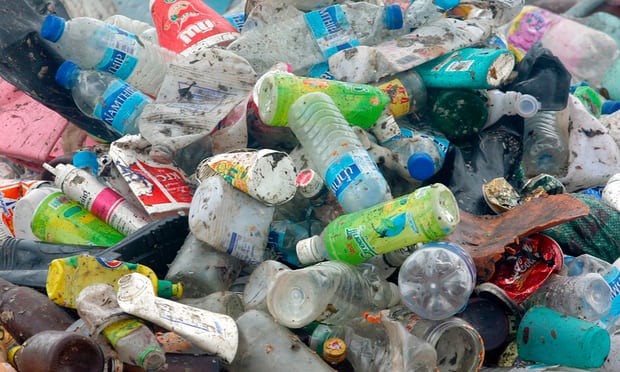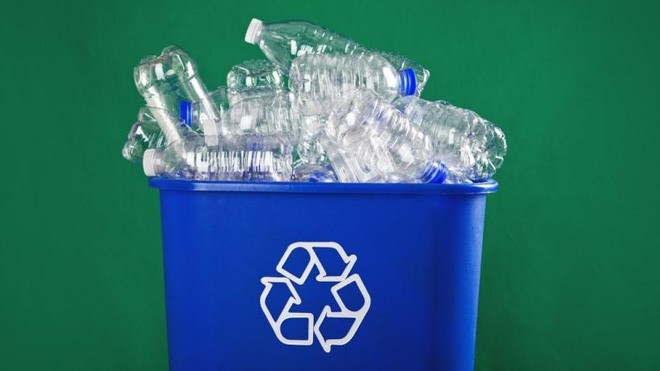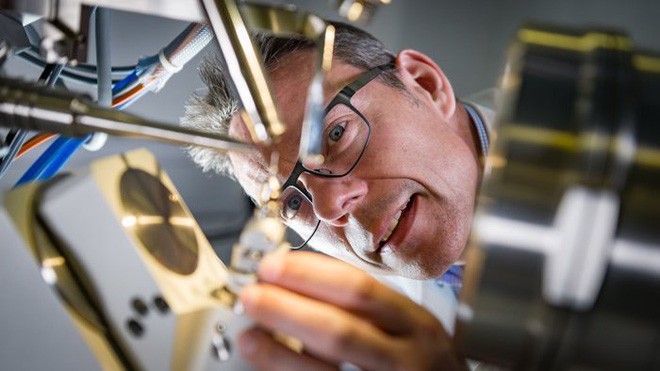Scientists created a mutant enzyme that 'ate' nearly a ton of plastic bottles after a few hours
Scientists have just created a special mutant enzyme capable of breaking down plastic. The context of the discovery of this enzyme is extremely strange: science knows its existence when conducting research on a pile of decaying dry leaves.
Special enzymes can break down plastic bottles into small plastic blocks, materials that can be used in the manufacture of high quality plastic bottles. Current technology of recycling plastic bottles is still very 'simple', so the finished plastic recycling is only enough to make clothes or carpets.

Carbios is the company behind the breakthrough that is capable of changing the production lines of many large companies, and they plan to recycle industrial plastic bottles on an industrial scale within the next five years. The first two big names have teamed up with Carbios to research and produce the new enzyme, Pepsi beverage and junk food and cosmetics firm L'Oréal. Experts have called the new enzyme a big step forward in the field of recycling.
Numerous surveys and researches show the presence of plastic all over the Earth, from the Arctic snow ice to the deep sea floor, affecting the habitat of millions of marine creatures, even can carry risks affecting human health. If the other enzyme is successful on an industrial scale, we will be able to significantly reduce the amount of plastic released into the environment every year.
A new scientific report, published in Nature, talks about the origin and how this mutant enzyme does its magic. The study began with the parameters of 100,000 potential microorganisms, among which species of bacteria grow in the decaying dry leaf clusters (discovered since 2012).
' We completely forgot about it, but it turned out to be the best we have, ' said Professor Alain Marty from the University of Toulouse, France and also the chief scientist of Carbios.
The researchers analyzed the enzyme that the bacterium releases, squeezing it to mutate to enhance the ability to disintegrate PET - which is the chemical that makes our plastic bottles known. The enzyme is still stable at 72 degrees Celsius, the point that is said to be near perfect for rapid decomposition of matter.

In the experiment, the scientific team used the mutant to this optimal mutant decomposing a ton of plastic bottles. They achieve incredible success when 90% of plastic waste is destroyed after about 10 hours. This waste is reused to make a plastic bottle that meets food safety standards.
At present, Carbios has signed a contract with biotechnology company Novozymes, which has the ability to produce special enzymes from mushrooms, with a production cost of only 4% of the cost of making new plastic from crude oil. .
The cost of recycled PET by this method is still higher than the price of virgin plastic, because the cost of collecting and heating the plastic before adding enzymes to digest is still high. But according to Martin Stephan, general manager of Carbios, low-cost recycled plastic is currently very high due to a lack of supply, so the technology still has a place.
' We are the first company to introduce this technology to the market, ' says director Stephan. ' Our goal is to be operational by 2024, 2025, at an industrial scale '.
The importance of plastic is difficult to measure in modern society, but the problem lies in plastic waste. Therefore, and to support a new and highly efficient recycling technology, we need to increase the collection of plastic waste.
Also around this time two years ago, a group of scientists accidentally created an enzyme that could break down plastic bottles. Professor John McGeehan, one of the people behind this study and also the director of the Enzyme Breakthrough Center at the University of Portsmouth, affirmed that Carbios is a leader in the plastic degradation enzyme. He enthusiastically called the new research a major breakthrough.

' A true industrial-scale plastic recycling line is possible thanks to the new enzyme. It is an important step forward in both decomposition speed, efficiency and heat resistance , 'Professor McGeehan said. This will be a technology that will allow us to reduce our dependence on the plastic production line from crude oil, cut emissions and energy consumption into plastic production, in addition to encouraging the collection of plastic bottles for recycling purposes. preparations.
You should read it
- ★ How long does it take waste to decompose?
- ★ The truth about recycling e-waste and its effectiveness
- ★ Manufacturing electric cables from plastic waste - The great plan for the situation of plastic waste pollution in the world today
- ★ While many countries are 'flooded with garbage', the country is importing waste to use
- ★ Microplastics discovered in an 11-year-old ice core in Antarctica